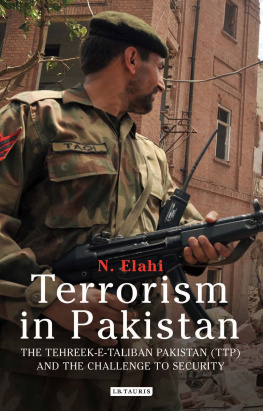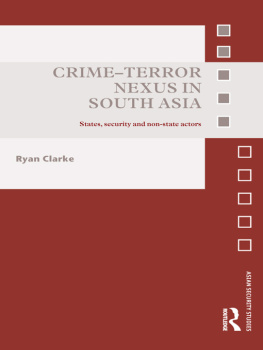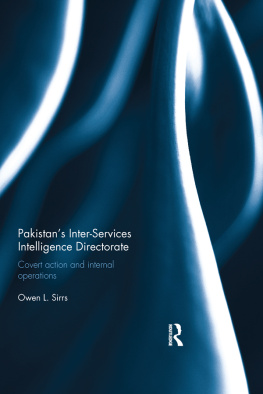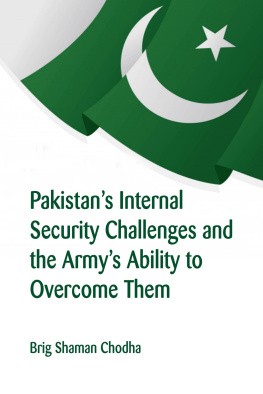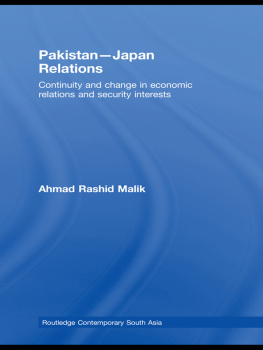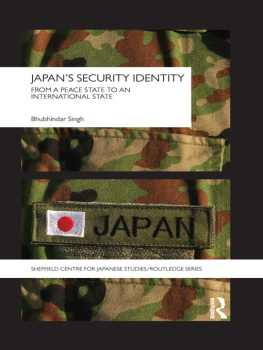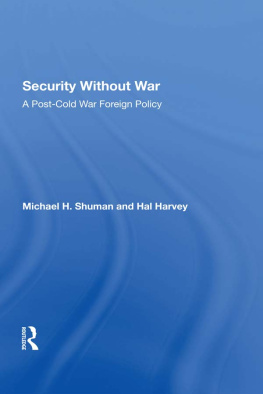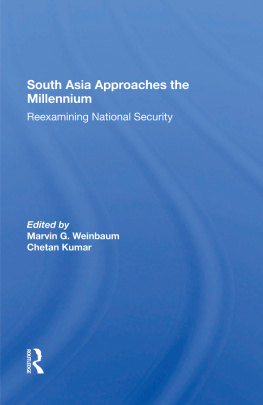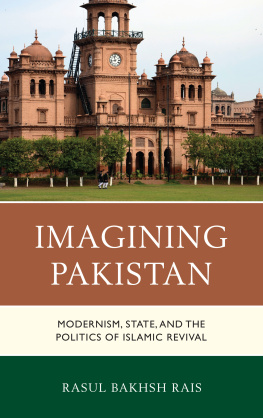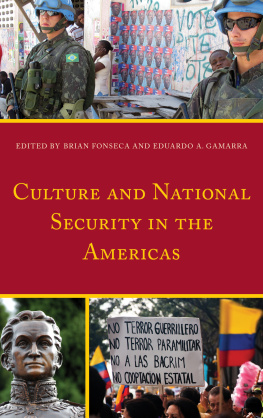Pakistans National Security Approach and Post-Cold War Security
This book analyzes the paradox that despite being a national security state, Pakistan has become even more insecure in the post-Cold War era. It provides an in-depth analysis of Pakistans foreign and security policies and their implications for the overall state and society.
The book identifies the immediate security challenges to Pakistan and charts the distinctive evolution of Pakistans national security state in which the military elite became the dominant actor in the political sphere of government during and after the Cold War period. By examining the national security state, militarization, democracy and security, proxy wars, and the hyper-military-industrial complex, the author illustrates how the vanguard role of the military created considerable structural, sociopolitical, economic, and security problems in Pakistan. Furthermore, the author argues that the mismatch between Pakistans national security stance and the transformed security environment has been facilitated and sustained by the embedded interests of the countrys military-industrial complex.
A critical evaluation of the role of the military in the political affairs of the government and how it has created structural problems for Pakistan, this book will be of interest to academics in the field of South Asian Politics and Security, South Asian Foreign and Security Policy, International Relations, Asian Security, and Cold War Studies.
Arshad Ali is an Assistant Professor in the Department of Political Science and International Relations at the University of Management and Technology, Pakistan.
Routledge Studies in South Asian Politics
19 Sharia and the State in Pakistan
Blasphemy Politics
Farhat Haq
20 Gender and Hindu Nationalism
Understanding Masculine Hegemony
Prem Kumar Vijayan
21 Hindu Nationalism in India
Ideology and Politics
Bidyut Chakrabarty and Bhuwan Jha
22 Electoral Politics and Hindu Nationalism in India
The Bharatiya Jana Sangh, 19511971
Koushiki Dasgupta
23 Government and NGOs in South Asia
Local Collaboration in Bangladesh
Mohammad Jahangir Hossain Mojumder and Pranab Kumar Panday
24 Parliaments in South Asia
India, Pakistan and Bangladesh
Nizam Ahmed
25 Pakistans Security and the India-US Strategic Partnership
Nuclear Politics & National Security
Syed Shahid Hussain Bukhari
26 Pakistans National Security Approach and Post-Cold War Security
Uneasy Co-existence
Arshad Ali
For more information about this series, please visit: www.routledge.com/asianstudies/series/RSSAP
Pakistans National Security Approach and Post-Cold War Security
Uneasy Co-existence
Arshad Ali
First published 2021
by Routledge
2 Park Square, Milton Park, Abingdon, Oxon OX14 4RN
and by Routledge
52 Vanderbilt Avenue, New York, NY 10017
Routledge is an imprint of the Taylor & Francis Group, an informa business
2021 Arshad Ali
The right of Arshad Ali to be identified as author of this work has been asserted by him in accordance with sections 77 and 78 of the Copyright, Designs and Patents Act 1988.
All rights reserved. No part of this book may be reprinted or reproduced or utilised in any form or by any electronic, mechanical, or other means, now known or hereafter invented, including photocopying and recording, or in any information storage or retrieval system, without permission in writing from the publishers.
Trademark notice : Product or corporate names may be trademarks or registered trademarks, and are used only for identification and explanation without intent to infringe.
British Library Cataloguing-in-Publication Data
A catalogue record for this book is available from the British Library
Library of Congress Cataloging-in-Publication Data
Names: Ali, Arshad, author.
Title: Pakistans national security approach and post-Cold War security : uneasy co-existence / Arshad Ali.
Description: Abingdon, Oxon ; New York, NY : Routledge, 2021. | Series: Routledge studies in South Asian politics | Includes bibliographical references and index.
Identifiers: LCCN 2020047713 | ISBN 9780367709785 (hardback) | ISBN 9781003152224 (ebook)
Subjects: LCSH: National security--Pakistan. | Pakistan--Foreign relations. | Jammu and Kashmir (India)--Politics and government. | Terrorism--Pakistan--Prevention. | War on Terrorism, 2001-2009.
Classification: LCC UA853.P3 A585 2021 | DDC 355/.03355491--dc23
LC record available at https://lccn.loc.gov/2020047713
ISBN: 978-0-367-70978-5 (hbk)
ISBN: 978-1-003-15222-4 (ebk)
Typeset in Times New Roman
by Deanta Global Publishing Services, Chennai, India
Dedicated to my wife Shabana Arshad, son Azlan Khan and daughter Zarshal Khan
Contents
As I reflect back on writing this book, it has been very tough but equally rewarding as I have accomplished something for which I have been striving the last few years. This journey would not have been possible without the constant support and encouragement of many influential people including teachers, colleagues, friends, and family members.
I am deeply grateful to Professor Robert G. Patman for his continuous support and encouragement, insightful advice, critical engagement, and extensive analytical discussions around this monograph. It was Professor Patman who guided me to convert my PhD thesis into a book manuscript for a renowned publisher. I would like to offer special appreciations to Dr. Chris Rudd for his constructive suggestions and valuable feedback and ideas which helped me in producing this piece of study. Special thanks to my department colleagues at the University of Management and Technology, Lahore, especially to Professor Muhammad Shoaib Pervez for his collegial support and leadership, inspiration, and constructive ideas to complete the revisions of this book on time. I would like to extend my gratitude to Dr. Anwar Shah and Dr. Arabinda Acharya for their unconditional support and assistance in my academic progress. Also, I am eternally indebted to my mentors Fazal Subhan and Inaytullah for believing in me and often encouraging me to excel in my academic journey.
I gratefully acknowledge my friends and old colleagues who assisted me in doing my field research in Pakistan. Three people deserve special words of gratitude: Dr. Sadia Sulaiman, Dr. Khuram Iqbal, and Dr. Shahzad Akhtar for their help and support in approaching interviewees. I extend my special thanks to Dr. Khuram and his wife who shared their residence with me during my stay in Islamabad. I am also very grateful to Yahya Maqbool and Assadullah Khan for organizing my visit to the parliament to interview politicians.
I am obligated to my siblings and parents Muhammad Payun and Bacha Bibi whose support are central to my academic success. I extend my appreciations and thanks to my awesome wife Shabana who waited patiently all the way until the completion of my PhD studies in New Zealand. Let me admit, I understand her feelings while leaving her behind with our twins Azlan Khan and Zarshal Khan in a society where patriarchy is the norm. On top of this, when one of our children (Zarshal) is disabled. Furthermore, I grew up when my father was working abroad so I do understand the feelings of my kids during my absence. I owe them the most especially to Shabana for taking care of our twins and giving me time to follow my intellectual pursuits. I will try to support her and my kids in their future endeavours.


